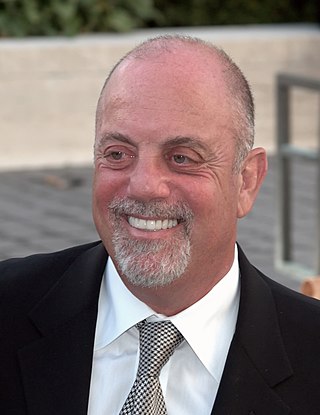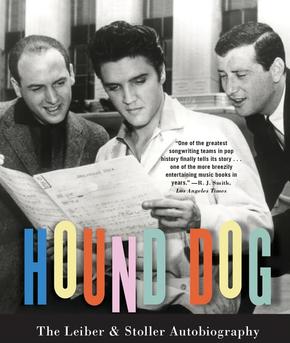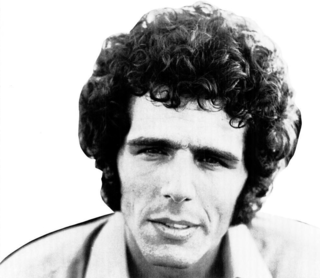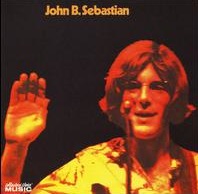Related Research Articles

William Martin Joel is an American singer, songwriter and pianist. Nicknamed the "Piano Man" after his signature 1973 song of the same name, Joel has had a successful career as a solo artist since the 1970s. From 1971 to 1993, he released 12 studio albums spanning the genres of pop and rock, and in 2001 released a one-off studio album of classical compositions. With over 160 million records sold worldwide, Joel is one of the world's best-selling music artists and is the fourth-best-selling solo artist in the United States. His 1985 compilation album, Greatest Hits – Volume I & Volume II, is one of the best-selling albums in the United States.

The Coasters are an American rhythm and blues/rock and roll vocal group who had a string of hits in the late 1950s. With hits including "Searchin'", "Young Blood", "Charlie Brown", "Poison Ivy", and "Yakety Yak", their most memorable songs were written by the songwriting and producing team of Leiber and Stoller. Although the Coasters originated outside of mainstream doo-wop, their records were so frequently imitated that they became an important part of the doo-wop legacy through the 1960s. In 1987, they were the first group inducted into the Rock and Roll Hall of Fame.

Leiber and Stoller were an American songwriting and record production duo, consisting of lyricist Jerome Leiber and composer Michael Stoller. As well as many R&B and pop hits, they wrote numerous standards for Broadway.

Cold Spring Harbor is the debut studio album by American recording artist Billy Joel, released on November 1, 1971, by Family Productions. The album sold poorly, receiving attention mainly after 1973's Piano Man and later albums became popular. Due to a mastering error, the original LP release ran at a faster speed than originally recorded. In 1983, producer Artie Ripp oversaw a remixed, edited and speed-corrected version of the album. This revised edition was issued by Columbia Records.

"Hound Dog" is a twelve-bar blues song written by Jerry Leiber and Mike Stoller. Recorded originally by Big Mama Thornton on August 13, 1952, in Los Angeles and released by Peacock Records in late February 1953, "Hound Dog" was Thornton's only hit record, selling over 500,000 copies, spending 14 weeks in the R&B charts, including seven weeks at number one. Thornton's recording of "Hound Dog" is listed as one of the Rock and Roll Hall of Fame's "500 Songs That Shaped Rock and Roll", ranked at 318 in the 2021 iteration of Rolling Stone's 500 Greatest Songs of All Time and was inducted into the Grammy Hall of Fame in February 2013.
Kama Sutra Records was started in 1964 by Artie Ripp, Hy Mizrahi, and Phil Steinberg as Kama Sutra Productions, a production house. The Kama Sutra is an ancient Sanskrit text.

Buddah Records was an American record label founded in 1967 in New York City. The label was born out of Kama Sutra Records, an MGM Records-distributed label, which remained a key imprint following Buddah's founding. Buddah handled a variety of music genres, including bubblegum pop, folk rock (Melanie), experimental music, and soul.

Red Bird Records was a record label founded by American pop music songwriters Jerry Leiber, Mike Stoller, and George Goldner in 1964. Though often thought of as a "girl-group" label, female-led acts made up only 40% of the artist roster on Red Bird and its associated labels. However, female-led acts also accounted for more than 90% of the label's charting records.
George Goldner was an American record label owner, record producer and promoter who played an important role in establishing the popularity of rock and roll in the 1950s, by recording and promoting many groups and records that appealed to young people across racial boundaries. Among the acts he discovered were the Crows, Frankie Lymon and the Teenagers, and Little Anthony and the Imperials.

Brewer & Shipley were an American folk rock duo who enjoyed their peak success in the late 1960s through the 1970s. The duo consisted of singer-songwriters Mike Brewer and Tom Shipley. They were known for their intricate guitar work, vocal harmonies, and socially conscious lyrics which reflected the concerns of their generation – especially the Vietnam War, and the struggles for personal and political freedom. Their greatest commercial success was the song "One Toke Over the Line" from their 1970 album Tarkio. They had two other singles on the Billboard charts: "Tarkio Road" (1970) and "Shake Off the Demon" (1971). They continued to perform, both separately and together, usually in the Midwest United States.

Robert Bloom was an American singer-songwriter. He is known best for the upbeat 1970 hit, "Montego Bay", which was co-written with and produced by Jeff Barry.
"Chapel of Love" is a song written by Jeff Barry, Ellie Greenwich and Phil Spector, and made famous by The Dixie Cups in 1964, spending three weeks at number one on the Billboard Hot 100. The song tells of the happiness and excitement the narrator feels on her wedding day, for she and her love are going to the "chapel of love", and "[they'll] never be lonely anymore." Many other artists have recorded the song.

"Remember (Walking in the Sand)", also known as "Remember", is a song written by George "Shadow" Morton. It was originally recorded by the girl group the Shangri-Las, who had a top five hit with it in 1964, their first hit single. A remake by Aerosmith in 1979 was a minor hit. There have been many other versions of the song as well.

John B. Sebastian is the debut album by the American singer-songwriter John Sebastian, previously best known as the co-founder and primary singer-songwriter of the 1960s folk-rock band the Lovin' Spoonful. The album, released in January 1970, includes several songs that would become staples of Sebastian's live performances during the early and mid-1970s. Most notably, the album included "She's a Lady", Sebastian's first solo single, and an alternate version of "I Had a Dream" which was used to open the soundtrack album of the 1970 documentary film Woodstock. John B. Sebastian also featured support performances by David Crosby, Stephen Stills and Graham Nash several months before that trio agreed to work together as a performing unit.
The Temptations were a vocal group from New York best known for the 1960 hit "Barbara". Issued on Goldisc Records, the song peaked on the Cash Box Magazine chart at #38 and on the Billboard Hot 100 at #29. The flip side song on "Barbara" was "Someday". Other recordings were: "Fickle Little Girl", "Letter of Devotion", "Ballad of Love", and "Tonight My Heart She Is Crying".
"One Kiss Led to Another" is a song written by Jerry Leiber and Mike Stoller and performed by The Coasters. The song reached #11 on the R&B chart and #73 on the Billboard Hot 100 in 1956. The song appeared on their 1957 album, The Coasters.
Ralph F. Palladino, known as Ralph Dino, and John Anthony Sembello, were an American singing and songwriting duo in the early 1970s. They recorded one album together, which included the original version of the song "Pearl's a Singer", co-written with leading songwriters and record producers Jerry Leiber and Mike Stoller, and later a hit in the UK for Elkie Brooks.
The Sermon were a rock band from Syracuse, New York that lasted from the late 1960s to early 1970s. They are known for their 1969 hit "Never Gonna Find Another Love" which was released on the Kama Sutra record label. They re-united decades later.
Steve Brodie was an American record label owner and founder who was very active during the 1960s and 1970s. He owned or co-owned Thunderbird Records, Sahara Records, Forever Music and various others. He also produced recordings for artists.

The Lovin' Spoonful is an American folk-rock band which was originally active between 1964 and 1968. During their original tenure, they released five studio albums, two soundtrack albums, four compilation albums, and fourteen singles in the United States. Between October 1965 and January 1967, their first-seven singles reached the Top Ten in the United States on Billboard magazine's Hot 100 chart, and the magazine's 1966 end-of-year issue ranked the group as that year's third-best-performing singles artist, after the Beatles and the Rolling Stones. Though the Spoonful achieved success during the transition to the album era, they and their label remained focused on the singles market; the group's 1966 album Daydream was their only studio album to break the Top Ten of the Billboard Top LPs chart, and its performance was bested only by a 1967 compilation album, The Best of the Lovin' Spoonful, which RIAA certified for gold that year. The Spoonful saw diminished success in 1967, when only two of their singles entered the top twenty in the U.S. Following further chart disappointments, the group disbanded in 1968.
References
- 1 2 "Results Detail". Business Filings (California). Retrieved October 29, 2015.
- 1 2 "The Four Temptations (ABC Records)". Whitedoowopcollector.blogspot.com. January 26, 2009. Retrieved October 26, 2015.
- 1 2 3 Bordowitz, Hank (2006). Billy Joel: The Life & Times of an Angry Young Man. Billboard Books. p. 43. ISBN 0823082482 . Retrieved June 30, 2015.
- ↑ Bordowitz, Hank (2007). Dirty Little Secrets of the Record Business: Why So Much Music You Hear Sucks (PDF). Chicago, Illinois: Chicago Review Press, Inc. p. 4. Retrieved October 30, 2015.
- ↑ Ribowsky, Mark (1989). He's a Rebel: Phil Spector--Rock and Roll's Legendary Producer. New York: Cooper Square Press. p. 68. ISBN 978-0-8154-1044-7 . Retrieved November 13, 2015.
- ↑ "Artie Ripp: Song Writer & Producer of Many Great Performers, Groups and Songwriters over a 50 year span". Homegrownmusicpublishing.com. Retrieved January 15, 2016.
- 1 2 3 4 5 6 7 8 9 10 Hyde, Bob. "The Kama Sutra/Buddah Records Story". Bsnpubs.com. Retrieved November 11, 2015.
- ↑ "THE TEMPTATIONS aka NEIL STEVENS & THE TEMPTATIONS". Whitedoowopcollector.blogspot.com. February 5, 2009. Retrieved October 26, 2015.
- ↑ Emerson, Ken (2005). Always Magic in the Air: The Bomp and Brilliance of the Brill Building Era. Penguin Books. ISBN 978-1-101-15692-6 . Retrieved July 22, 2016.
- ↑ Rolontz, Bob (December 25, 1961). "Music as Written: New York". Billboard Music Week: 25. Retrieved October 22, 2015.
- ↑ "Biography - Dimension". 45cat.com. Retrieved November 13, 2015.
- ↑ Hollander, Sophia (December 25, 2014). "NY Culture: Another Rock 'n' Roll Birthplace". The Wall Street Journal. Retrieved October 24, 2015.
- ↑ "Goldmark in Own Business with Art Ripp". Billboard Music Week: 14. July 14, 1962. Retrieved October 22, 2015.
- ↑ "Atlantic Rhythm and Blues 1947-1974: Volume Five". Albumlinernotes.com. Archived from the original on October 29, 2010. Retrieved January 14, 2016.
- ↑ "Billboard The Hot 100: The Week of July 27, 1963". Billboard.com. Retrieved January 14, 2016.
- ↑ Peno, Gaswomi (ed.). Bad Religion: The Complete Guide. p. 79.
- ↑ Pollock, Bruce (2005). Rock Song Index (2 ed.). New York: Routledge, Taylor & Francis Group. p. 199. ISBN 0-415-97073-3 . Retrieved January 14, 2016.
- ↑ "Goldie Signs On With Premier". Billboard. February 16, 1963. p. 6. Retrieved October 22, 2015.
- ↑ "Industry Briefs: Award Inks Dobkins". Billboard. July 13, 1963. p. 6. Retrieved October 28, 2015.
- 1 2 3 "Col., K-S Pact Reflects Inroads". Billboard. February 13, 1965. p. 4. Retrieved October 31, 2015.
- ↑ Grecco, John J. "Out In The Streets: The Story of The Shangri-Las". Redbirdent.com. Archived from the original on June 22, 2015. Retrieved January 14, 2016.
- 1 2 "Leiber - Stoller - Goldner Present The Shangri-Las [advertisement]". Billboard. August 15, 1964. p. 5. Retrieved October 28, 2015.
- ↑ "Billy Joel: 1994 Recipient of The Century Award". Billboard. December 3, 1994. p. 13. Retrieved January 5, 2016.
- ↑ "Jay and the Americans". History-of-rock.com. Retrieved November 19, 2015.
- ↑ "Jay and the Americans biography is a Trilogy". Jayandtheamericans.net. Retrieved November 19, 2015.
- ↑ "MGM Will Handle Kama-Sutra". Billboard. June 19, 1965. p. 3. Retrieved February 24, 2016.
- ↑ Hartman, Kent (March 1, 2018). "Essay: When L.A.'s Recording Studios Ruled the Music Scene". Zocalopublicsquare.org. Retrieved September 25, 2022.
- ↑ "Coast Kama Sutra Rolls in High". Billboard. January 28, 1967. pp. 6, 10.
- ↑ "Record Details". 45cat. Retrieved January 12, 2016.
- ↑ "The Hot 100: The Week of August 21, 1965". Billboard.com. Retrieved January 12, 2016.
- 1 2 3 4 5 6 7 Schruers, Fred (2014). Billy Joel: The Definitive Biography. New York: Crown Publishing. ISBN 978-0-8041-4019-5 . Retrieved November 9, 2015.
- ↑ "Ashley Famous Takes on Acts Of Kama Sutra". Billboard. July 8, 1966. p. 24. Retrieved May 20, 2017.
- ↑ 45Cat - Record Details, Artist: Bobby Bloom, Catalogue: KA 223, Bobby Bloom Love, Don't Let Me Down
- ↑ Record World, April 22, 1967 - Page 20 record world's SINGLES COMING UP, 8
- ↑ Cash Box, April 22, 1967 - Page 14 Cash Box LOOKING AHEAD, 30
- 1 2 3 4 5 Dannen, Fredric (1990). Hit Men: Power Brokers and Fast Money Inside the Music Business. Random House. ISBN 0-8129-1658-1 . Retrieved November 20, 2015.
- ↑ "KS to Handle Distribution On Its 2nd Label, Buddah". Billboard. April 1, 1967. p. 3. Retrieved January 14, 2016.
- 1 2 Hoffmann, Frank. "Survey of American Popular Music: Buddah Records". Shsu.edu. Sam Houston State University. Retrieved November 20, 2015.
- ↑ Spahr, Wolfgang (October 14, 2008). "Bertelsmann Unveils BMG Rights Management". Billboard. Nielsen Business Media, Inc. Retrieved January 11, 2016.
- 1 2 3 "Par, Famous Tie A. Ripp Family". Billboard. October 31, 1970. p. 1. Retrieved January 11, 2016.
- 1 2 3 McCartney, Ruth. "Ruth McCartney interviews Neil Merryweather". TheNeilMerryweather.com. Retrieved January 4, 2016.
- 1 2 Kirsch, Bob (August 10, 1974). "Famous Labels Bought by ABC". Billboard. p. 19. Retrieved January 4, 2016.
- ↑ "Results Detail: Family Productions, Inc". Business Filings (California). Retrieved November 17, 2015.
- 1 2 White, Timothy (September 4, 1980). "Billy Joel Is Angry". Rolling Stone. Retrieved June 11, 2018.
- ↑ "Sleeping With The Music On". Billyjoel52ndstreetserenade.blogspot.com. Retrieved October 30, 2015.
- 1 2 Erlewine, Stephen Thomas. "AllMusic Review: Cold Spring Harbor". AllMusic.com. Retrieved January 14, 2016.
- ↑ "Billboard Album Reviews: Pop--Billy Joel, Cold Spring Harbor". Billboard. February 19, 1972. p. 30. Retrieved January 14, 2016.
- ↑ Goldstein, Ian. "Top of the Pops: Cold Spring Harbor". Nowherebutpop.com. Retrieved January 5, 2016.
- 1 2 Larkin, Colin, ed. (2011). The Encyclopedia of Popular Music (5th Concise ed.). Omnibus Press. ISBN 978-0-85712-595-8 . Retrieved November 17, 2015.
- ↑ Waddell, Ray (May 8, 2009). "Q&A: Turning 60, Billy Joel is 'Happy and Contented'". Reuters.com. Retrieved January 5, 2016.
- ↑ Getlen, Larry (January 26, 2014). "How Billy Joel Became 'The Piano Man'". New York Post. Retrieved January 5, 2016.
- ↑ Goodman, Fred (March 1991). "An Innocent Man". Spy: 73. Retrieved June 30, 2015.
- ↑ "Billy Joel: The Life & Times Of An Angry Young Man (continued)". Billboard.
- ↑ Paumgarten, Nick (October 27, 2014). "Thirty-Three-Hit Wonder". The New Yorker. Retrieved February 25, 2016.
- 1 2 3 4 Schultz, Barbara (January 1, 2010). "Classic Tracks: The Runaways "Cherry Bomb"". Mixonline.com. Mix Magazine. Retrieved November 16, 2015.
- 1 2 "Studio Track". Billboard. August 8, 1981. p. 34. Retrieved January 11, 2016.
- ↑ Peterik, Jim (2014). Through the Eye of The Tiger:The Rock 'n' Roll Life of Survivor's Founding Member. BenBella Books. ISBN 978-1940363165 . Retrieved November 22, 2015.
- 1 2 3 Kelly, Karen (July 19, 1980). "Artie Ripp: Old-Timer More Active Than Ever With Publishing, Producing, Studio". Billboard. p. 10. Retrieved June 30, 2015.
- ↑ "Billy Joel: Cold Spring Harbor [1983]". Discogs.com. Retrieved November 16, 2015.
- ↑ "Winners". Grammy.com. Retrieved November 1, 2015.
- ↑ "Executive Turntable: Publishing". Billboard. August 8, 1981. p. 4.
- ↑ "Results Detail: Ripparthur Music, Inc. Inc". Business Filings (California). Retrieved November 22, 2015.
- ↑ "Results Detail: Home Grown Music, Inc. Inc". Business Filings (California). Retrieved November 22, 2015.
- ↑ Amergence (December 10, 2008). "DVCD+ To Convert Music Found on DVD Soundtracks to Audio CDs". Storagenewsletter.com. Retrieved November 18, 2015.
- ↑ "Business Entities". Business Filings (California). Retrieved July 18, 2021.
- ↑ Crowe, Cameron. "American Hot Wax: Freed at Last [from Rolling Stone magazine, April 20, 1978]". Theuncool.com. Retrieved October 30, 2015.
- ↑ "Number One With a Bullet (1987): Acting Credits". Movies & TV Dept. The New York Times . 2016. Archived from the original on March 25, 2016. Retrieved July 18, 2021.
- ↑ Mann, Iris. "From Jewish Housewife to Rock 'n' Roll Mogul". Jewishjournal.com. Retrieved October 23, 2015.
- ↑ Jones, Kenneth (April 27, 2011). "It's Her Party: Baby It's You!, starring Beth Leavel, Opens on Broadway". Playbill. Retrieved November 13, 2015.
- ↑ Jones, Kenneth; Gans, Andrew (May 3, 2011). "2011 Tony Nominations Announced; Book of Mormon Earns 14 Nominations". Playbill. Retrieved November 13, 2015.
- ↑ "Everly (2014): Production Credits". Movies & TV Dept. The New York Times . 2016. Archived from the original on March 25, 2016. Retrieved November 14, 2015.
- ↑ "AA Review Family". Badcatrecords.com. Retrieved January 18, 2016.
- ↑ Smith, Giles (October 22, 2011). "MUSIC / Playing piano until the fingers get burnt: After 20 years in the music business, Billy Joel has a lot to teach about music. And a lot to learn about business". Independent. Archived from the original on March 4, 2016. Retrieved November 13, 2015.
- ↑ Baldwin, Alec. "Here's the Thing with Alec Baldwin [a transcript of an interview with Billy Joel]". Wnycstudios.org. WNYC Radio. Retrieved June 17, 2020.
- ↑ Oldham, Andrew Loog (2014). Rolling Stoned. Syracuse, New York: Gegensatz Press. p. 218. ISBN 9781933237848.
- ↑ "THE PHILIP COHEN COLLECTION: BILLY JOEL (PITCH CORRECTED)". Bigozine2. December 28, 2010. Retrieved July 18, 2021.
- ↑ "ABC News 20/20 Joel". Amazon.com. Retrieved February 26, 2016.
- ↑ "Billy Joel documentary ABC 20/20", Youtube.com, 5:04 minutes in, June 14, 2014, retrieved July 18, 2021
- ↑ "Phyllis Ripp". Variety. March 4, 1993. Retrieved October 29, 2015.
- ↑ P., Ken (January 3, 2003). "10 Questions: Adam Ripp". Ign.com. Retrieved October 29, 2015.
- ↑ Shanfeld, Ethan (March 9, 2022). "Billy Joel Biopic 'Piano Man' Greenlit by Michael Jai White's Jaigantic Studios (EXCLUSIVE)". Variety.com. Retrieved September 27, 2022.
- ↑ "'Lost Stallions:The Journey Home' Full Cast & Crew". IMDb.com. Retrieved October 31, 2015.
- ↑ Harvey, Dennis (March 22, 2001). "Review: 'Gang Tapes'". Variety.com. Retrieved October 31, 2015.
- ↑ Loewenstein, Lael (March 22, 1998). "Review: 'Meet the Deedles'". Variety.com. Retrieved October 30, 2015.
- ↑ "Sailor Moon". Loc.gov. U.S. Library of Congress. Retrieved November 6, 2015.
- ↑ "Eric Burdon: Sixteen Tons". 45cat.com. Retrieved November 13, 2015.
- ↑ "Sophisticated Boom Boom: The Shadow Morton Story". Barnesandnoble.com. Retrieved November 17, 2015.
- ↑ "Various: China Beach: Music and Memories". Discogs.com. Retrieved February 12, 2016.
- ↑ "Premonition: Credits". Allmusic.com. Retrieved November 22, 2015.
- ↑ "Cold Spring Harbor: Credits". Allmusic.com. Retrieved November 13, 2015.
- ↑ "Kyle (8): Time That Try a Man's Soul". Discogs.com. Retrieved February 12, 2011.
- 1 2 "Album Reviews: Kyle: Times That Try a Man's Soul". Billboard. May 22, 1971. p. 39. Retrieved February 12, 2016.
- ↑ Kurtz, Warren (October 20, 2018). "Fabulous Flip Sides – Henry Gross Interview - Sha Na Na to Shannon and Beyond". Goldminemag.com. Retrieved September 25, 2022.
- 1 2 "Billy Joel, FPA-0900". 45cat.com. Retrieved November 18, 2015.
- 1 2 "Record Details". 45cat.com. Retrieved January 8, 2016.
- 1 2 "Tony Bruno". 45cat.com. Retrieved November 20, 2015.
- 1 2 "Vincent Edwards (2) - To Be With You / Nylon Stockings". Discogs.com. Retrieved February 25, 2016.
- ↑ "Spotlight Singles". Billboard. September 23, 1967. p. 18. Retrieved November 22, 2015.
- ↑ "Put a chart in front of them and what do they do? They climb it. [advertisement]". Billboard. December 10, 1966. p. 49.
- ↑ "Billboard Hot 100". Billboard. April 2, 1966. p. 24. Retrieved November 11, 2015.
- ↑ "Billboard Hot 100". Billboard. May 28, 1966. p. 24. Retrieved November 13, 2015.
- ↑ "Spotlight Singles: Top 60". Billboard. November 27, 1965. p. 16. Retrieved November 13, 2015.
- 1 2 3 "Being Built by Kama Sutra Productions [advertisement]". Billboard. April 3, 1965. p. 15. Retrieved November 13, 2015.
- ↑ "Jay and the Americans". 45cat.com. Retrieved November 18, 2015.
- 1 2 "Jay and the Americans: Come A Little Bit Closer; Goodbye Boys Goodbye (Ciao Ragazi Ciao)". 45cat.com. Retrieved November 14, 2015.
- ↑ New York Daily News. "Videos Mine Musical World of 'Shindig'". Orlandosentinel.com. Archived from the original on March 4, 2016. Retrieved February 26, 2016.
- ↑ "Born to Be". A Guide to the Recordings of Melanie Safka. Retrieved January 18, 2016.
- 1 2 "Melanie - I'm Back In Town (Melanie Safka)". Dada-records.de. Retrieved January 18, 2016.
- ↑ "Artist: Kenny Karen". 45cat.com. Retrieved November 13, 2015.
- ↑ Copyright office, Library of Congress (1959). "Music: January - June 1958". Catalogue of Copyright Entries. 12 (1): 1056. Retrieved November 12, 2015.
- ↑ "The Merv Griffin Show: June 30, 1971". Tv.com. Retrieved March 4, 2016.
- ↑ "Search results from Joe Smith". The Library of Congress. Retrieved December 22, 2016.